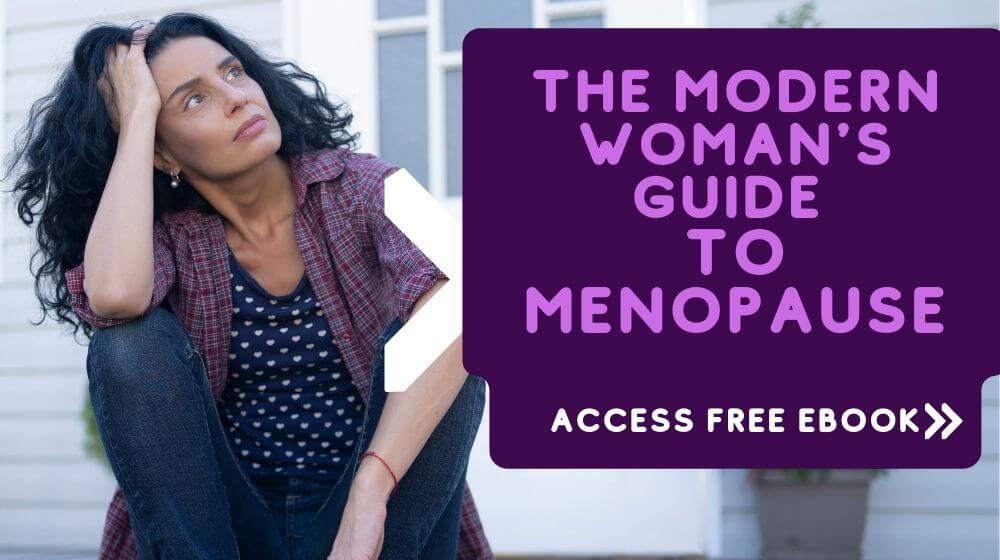As women age, they go through a number of changes. One of the most significant changes is menopause, which can cause a host of symptoms including hot flashes, night sweats, mood swings, and weight gain. Menopause occurs when a woman’s ovaries stop producing eggs and her body no longer produces the hormones estrogen and progesterone.
What is Peri-Menopause?
Perimenopause is the transition period leading up to menopause. During perimenopause, a woman’s ovaries gradually produce less estrogen, which can cause fluctuations in her hormone levels. These hormonal fluctuations are responsible for the various physical and emotional symptoms associated with perimenopause, including hot flashes, night sweats, mood swings, anxiety, weight gain, and sleep problems. For most women, perimenopause lasts anywhere from two to eight years.
How Do I Know if I’m Experiencing Peri-Menopause?
If you’re in your 40s or early 50s and starting to experience any of the above-mentioned symptoms—particularly irregular periods—it’s likely that you’re in perimenopause. The best way to confirm whether or not you’re in perimenopause is to visit your doctor for a blood test that measures your hormone levels.
What Can I Do About My Peri-Menopausal Symptoms?
There is no one-size-fits-all solution for managing perimenopausal symptoms, as each woman experiences them differently. However, there are some general things you can do to ease your symptoms, such as:
1. Eat a healthy diet
For menopausal women, eating a healthy diet is extremely important. Not only does it help maintain their general health – but that menopause symptom of weight gain can become more manageable when menopausal women eat better foods. Furthermore, it’s been proven that menopause brings with it an increased risk of pre diabetes and certain types of cancer too – so leading a healthier lifestyle through eating the right food can help drastically reduce these risks as well. Ultimately, menopausal women should focus on establishing healthy eating habits for long-term benefits to their body; as this will contribute to happier and healthier menopause years!
2. Reduce stress
For menopausal women, reducing stress can go a long way in alleviating many of the symptoms associated with menopause. This can be achieved through a combination of incorporating regular rest and relaxation into your day-to-day life, as well as setting realistic standards for yourself and allowing yourself time to relax and unwind. Additionally, engaging in activities such as yoga, deep breathing exercises and mindfulness practices can also help reduce menopause related stress levels. It is important for menopausal women to recognize the importance of taking care of their mental and physical health during this challenging time.
3. Quit smoking
Women experiencing menopause should take a look at quitting smoking. Studies have shown that smoking can exacerbate common menopausal symptoms, such as hot flashes and vaginal dryness. Furthermore, it increases the risk of stroke and heart disease, which are already greater in menopausal women due to hormonal shifts. Quitting smoking has numerous health benefits both immediately and over time – in addition to reducing menopause symptoms, you’ll be taking great strides towards improved overall health when you quit. Talk to your doctor to review which support aid may be right for you as you make this important transition.
4. Get enough sleep
When menopause women are not getting enough sleep, it can lead to many unpleasant experiences. These range from common menopause symptoms like hot flashes, night sweats, and fatigue to more serious health issues such as heart disease and osteoporosis. Stress levels can increase during menopause, which can make it even more difficult to fall asleep or maintain a consistent sleep schedule. Adequate rest is essential in battling menopause discomfort and reducing stress levels. Seeking medical advice along with maintaining a healthy lifestyle with proper nutrition and exercise also helps menopausal women get the restful sleep they need to combat menopausal distress.

5. Take supplements such as vitamin D and calcium
Taking supplements, such as vitamin D and calcium, which can provide certain benefits to menopausal women. Studies have indicated that regular consumption of these beneficial elements may reduce menopausal symptoms and improve overall health, making them especially valuable for menopausal women seeking to improve their quality of life. Thus, menopausal women considering the use of supplements should speak with their doctors about factors like dosage amounts and how supplements fit into a menopause care plan.
If your symptoms are particularly severe, your doctor may also recommend hormone therapy. This can be taken in the form of pills, patches, creams, or vaginal Rings.
What is Menopause?
Menopause is the point at which a woman has her last period and can no longer become pregnant naturally. For most women, this occurs around age 51 (though it can range from age 40 to 58). Once a woman has gone 12 months without having a period, she is officially considered to be in menopause. Some women may experience menopausal symptoms for several years before their last period; this is known as premenopausal menopause or premature menopause.
For some women, menopause is a relief from the discomforts of their monthly period. But for others, it can be a time of great upheaval as their bodies go through major changes. In the years leading up to menopause (perimenopause), many women experience irregular periods, hot flashes, and sleep problems. During perimenopause, the ovaries gradually produce less estrogen. As estrogen levels fall, hot flashes and night sweats often occur.
Hot flashes are sudden feelings of warmth that spread over the body and last from 30 seconds to several minutes. Hot flashes sometimes are accompanied by a rapid heart rate or sweating. They may occur more often during activities that increase body temperature such as exercising or hot weather. Hot flashes usually disappear after menopause; however, about 20% of women still have them 10 years later.
The causes of hot flashes are not completely understood but may be related to declining estrogen levels. When hot flashes occur at night, they are called night sweats. Night sweats can disrupt sleep and leave you feeling tired during the day.
Mood swings also are common during perimenopause and menopause. Some women report feeling irritable or “on edge” most of the time or even depressed. These mood swings likely are related to declining estrogen levels and may be made worse by stress or lack of sleep.
Weight gain is another common problem during perimenopause and menopause. As women age, their metabolism slows and they tend to lose muscle mass and gain fat. Declining estrogen levels also may contribute to weight gain by causing the body to store more fat in the abdomen area (belly). To avoid weight gain during this time, eat a healthy diet and get regular exercise.
Experiencing peri-menopausal or menopausal symptoms can be challenging for any woman; however, there are treatments available that can help alleviate some of the discomforts caused by declining hormone levels. If you think you might be experiencing peri-menopausal or menopausal symptoms, talk to your doctor so they can help you find the best course of treatment for you.





